Are you looking for new opportunities for your business and want to offer your industrial subcontracting services in the United States? In this article, we share tips for a successful entry into the American market. First, it’s important to fully understand the expectations of American companies. They are looking for reliable suppliers who can meet deadlines and quality standards. To stand out, you must therefore be able to guarantee these criteria.
Then, it is recommended to be accompanied by local experts. They can help you understand the cultural and regulatory differences between your country and the United States. They can also help you identify market opportunities and potential partners.
It is also important to prepare your offer well. It must be clear, precise, and adapted to the needs of American companies. In particular, you will need to highlight your experience, skills, and certifications. To successfully enter the US market, you will need to be able to communicate effectively. In particular, you will need to be able to present your business convincingly, negotiate with your partners and resolve any conflicts.
If you want to offer your industrial subcontracting services in the United States, you will have to be ready to invest time and resources to successfully enter the market. By following the advice given in this article, you will be able to present a competitive offer and meet the expectations of American companies.
15 Tips to Offer Your Subcontracting Services To Americans
1. Identify Potential Clients
Identifying potential clients is an important step in offering industrial subcontracting services to Americans. To succeed, prime contractors typically hire business specialists that can help them identify contracting opportunities and navigate the complex program eligibility requirements. While business participation may be attainable in any industry, it’s also fruitful to pursue government contracts. The American Federal government allows private sector contracting officers the opportunity to participate as subcontractors for any executive agency through a wide variety of means.
Business representatives should be aware of initiatives like the Women-Owned Small Business (WOSB) program, which is designed to ensure that women-owned small businesses have an equal opportunity to participate in federal contracting. Likewise, government entities such as the Department of the Treasury and the Department of Defense have initiatives like the Office of Small and Disadvantaged Business Utilization (OSDBU), which empowers small business contractors to get their fair share of government contracting agreements.
2. Establish An Online Presence
Establishing an online presence is key for any business in the construction industry. One way to do this is through digital media such as social networks or industry-specific websites. This will allow you to target specific audiences and get your message across quickly and easily.
Additionally, creating content like blog posts or videos related to the services you provide can help educate people about what makes your business unique. Connecting with potential customers through these networks and providing content that speaks directly to their needs will help you demonstrate why they should choose you over other providers. Moreover, it will help build trust with prospective clients and ultimately boost sales opportunities for your business.
3. Develop A Business Plan
When it comes to offering industrial subcontracting services in the United States, having a well-developed business plan is essential. A good plan should include an understanding of subcontracting opportunities and federal contract actions, as well as how your business size status fits into these regulations. Here are some key elements to consider when creating a successful business plan:
- Subcontracting opportunities: It’s important to understand what business opportunities you can be eligible for. This will help you form a strategy for pursuing different types of independent contractor agreements with various organizations.
- Business size standards: Knowing the standards used by each agency or organization you’re working with is critical to accurately assess whether or not you qualify for certain contracts based on your company’s size status. Business size is determined by the amount of average annual receipts or the number of employees.
- Entity identifier: If you wish to work with the Federal government, then you’ll need to have an entity identifier registered with System For Award Management (SAM). While this may be complicated to achieve, being included in the federal procurement data system provides business contractors with a wide range of opportunities.
- Small business subcontracting plan: Make sure you know what commitments must be met by subcontracting officers when working with larger businesses. This information sets your team up for success when looking at potential opportunities from large entities.
- Prime contract actions: Familiarize yourself with how contractors are selected and awarded contracts, including areas such as solicitation evaluation factors, bid preparation strategies, and other details related to winning a federal contract action.
4. Understand U.S. Regulations And Standards
When offering industrial subcontracting services to Americans, it’s important to understand the regulations and standards mandated by the United States. Having a good understanding of U.S. regulations and standards before submitting bids on projects is essential for any business looking to get involved in American industrial subcontracting services.
Researching the rules thoroughly allows companies to accurately assess their subcontracting plans versus what is expected from prospective clients. Make sure you read all applicable laws related to your industry to avoid potential legal issues down the line. Working alongside subcontracting experts will provide you with expert knowledge about these matters, making the process of offering industrial services to Americans substantially simpler.
Interested prospective contractors can also access information about other contracts through the Dynamic Small Business Search database and other resources offered by the Small Business Administration (SBA). This will provide insight into various requirements imposed on contractors and how they should be fulfilled for successful contract awards.
5. Build Professional Relationships
Building professional relationships is one of the most important ways to offer your industrial subcontracting services to Americans. Being able to engage in open dialogue about pricing strategies or compliance issues can ensure a smooth process during contract negotiations. It’s beneficial to establish good relations with other businesses and government organizations such as the Office of Government Contracting.
Should I use contract manufacturing for my business?
6. Understand The American Market
To effectively manage contracting activities in the U.S., you need to understand the American market and its procurement regulations. This includes researching previous contracts, identifying current administrative contracting officers (ACOs), and assessing local construction contractors for the performance of construction work.
Furthermore, researching a contracting agency’s procurement program may provide valuable insight into the type of entity or subcontractor that can best meet specifications. Being familiar with any regulations or guidelines set forth by each state in regard to contractor requirements is also beneficial.
7. Explore Opportunities To Expand Services
Exploring opportunities to expand contracting activities is an important part of offering industrial subcontracting services to Americans. By doing this research ahead of time, you’ll be better able to identify where there may be possible openings for subcontractors while also understanding the needs of prime contractors.
To make sure that you are well informed when it comes to subcontracts, you should track down any applicable procurement activities taking place within your target area so that you can be prepared for bidding opportunities. Moreover, you should identify prospective contractors who have worked on similar projects in the past with success. When doing research, you should aim to understand basic contract requirements such as the type of funding used, vendor selection process, and applicable laws or regulations.
8. Set Competitive Rates
When it comes to setting competitive rates for industrial contracting activities, many factors should be carefully considered. It’s advantageous to keep the following in mind:
- Contract files: You should analyze past contracts, annual receipts, indirect costs, and other related information when determining a fair proportion of subcontract work awards.
- Delivery requirements: You should understand goals for business awardees based on industry standards and economic production runs.
- Bid acquisitions: Make sure to research potential bids from customers while ensuring they meet all quality specifications
- Percent subcontract work: Determine an appropriate percentage that aligns with contractual obligations and still allows your company to remain profitable.
By taking these key elements into account, you can create pricing structures that will allow you to offer reliable services at competitive rates without compromising profitability or customer satisfaction levels.
9. Create A Custom Proposal
By providing customized solutions that fit clients’ specific requirements, you’ll be able to tailor your approach when offering industrial subcontracting services. Businesses must pay close attention to detail while ensuring all relevant information is included and up-to-date. Furthermore, some solicitations require quick turnaround times with days after receipt potentially being very short-lived, so it’s important for contracting officials to make their moves fast.
Businesses must make sure they include the cost of materials needed as well as those related to labor in their bids or offers so they aren’t caught off guard during negotiations. It’s also important to meet all initial requirements that have been set forth by the procuring agency and submit them within the allotted time period.
Small business concerns are usually given preference in many procurement situations, so businesses need to see if the department of the federal government has jurisdiction over the particular procurement in question. Additionally, businesses need to ensure that their information is updated on the Federal Procurement Data System (FPDS) before starting any contracting activities with federal agencies.
10. Leverage Networking Opportunities
By leveraging networking opportunities, you can create relationships with potential customers and demonstrate the value of your services. It’s important to focus on building mutually beneficial relationships with key decision makers in American industries who may have use for your services.
Searching for trusted contacts or industry networks that can connect you with individuals who share your goals and objectives will help you grow your business or even give you access to simplified acquisition procedures. Strong professional connections allow you to better meet customer needs while also spreading the message about your services cost effectively.
11. Craft Your Unique Selling Proposition
Whether you’re targeting an American market or any other region, having a truly compelling narrative can be the difference between success and failure. Your unique selling proposition (USP) should reflect your company’s core mission and values while showcasing the advantages of working with you over others in the industry.
It’s important to research the competition and see what they have to offer. This will give you insight into how to position yourself differently. You may also want to look at customer reviews or seek expert guidance. Once you analyze this data, you should create messaging that highlights how your services are distinct from those of competitors.
12. Ensure Optimal Quality Control
When it comes to offering industrial subcontracting services to Americans, ensuring optimal quality control is essential. All components and materials used in the manufacturing process must meet strict standards for excellence before they can be incorporated into a product or service. Quality control also involves regularly testing products and services so that any defects are identified quickly and remedied efficiently.
Having rigorous quality assurance processes in place helps build customer trust and loyalty. Clients want to feel confident that the goods or services they receive will perform as expected when they use them. By taking the necessary steps to ensure outstanding levels of quality, you can demonstrate your commitment to producing reliable results on an ongoing basis.
13. Market Your Services
When it comes to marketing your industrial subcontracting services, there’s a lot to consider. You’ll need an effective business development plan to effectively reach American customers and make them aware of what you have to offer. It’s also important that you’re able to demonstrate the quality and reliability of your services to build trust with potential clients.
14. Monitor The Performance Of Subcontracts
Once you have identified potential clients and marketed your services to them, the next step is monitoring the performance of subcontracts. This involves ensuring that all parties are meeting their contractual obligations in a timely manner. If any issues arise during the course of the contract, it’s important to address them quickly and effectively.
Periodically auditing performance is also beneficial to help maintain high-quality standards. By doing this, you’ll gain insight into how well you’re adhering to agreed-upon specifications and whether additional support may be required at any point in time. Through consistent communication and oversight, you can help ensure successful outcomes for all involved stakeholders.
15. Leverage Technology For Efficiency
With the right tools, businesses can streamline processes while saving time and money on projects. Technology also helps improve accuracy and provides better insights into production performance. Modern technologies such as artificial intelligence (AI) are being used increasingly more often within various industries, including by industrial subcontractors. AI can be employed to automate certain tasks while also helping with decision-making processes. Technology has been proven especially useful in predicting trends based on past data, enabling users to anticipate future demands and plan accordingly.
Industrial Subcontracting services
Subcontracting is an important part of the industrial economy in both the U.S. and abroad, and it can be a very lucrative business for those who know how to offer their services effectively. At Alpha Contract, we can help you build strong professional relationships with clients while ensuring quality control, marketing your services, monitoring the performance of subcontracts, and utilizing the best technology.
Thanks to our team of experts, you will gain access to the knowledge necessary to successfully offer your industrial subcontracting services to American businesses or organizations. With the right combination of market research, planning skills, customer service expertise, and technological capabilities, we can help you meet your goals for subcontract awards.







